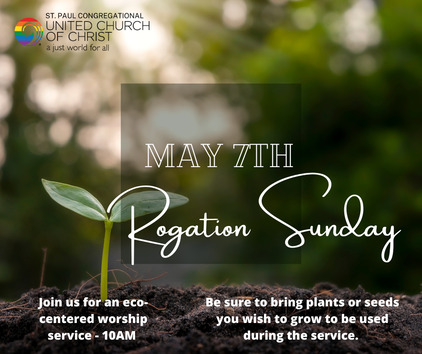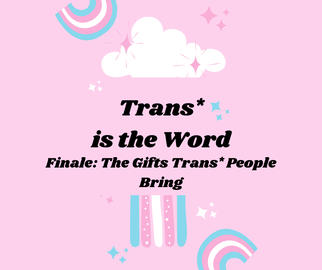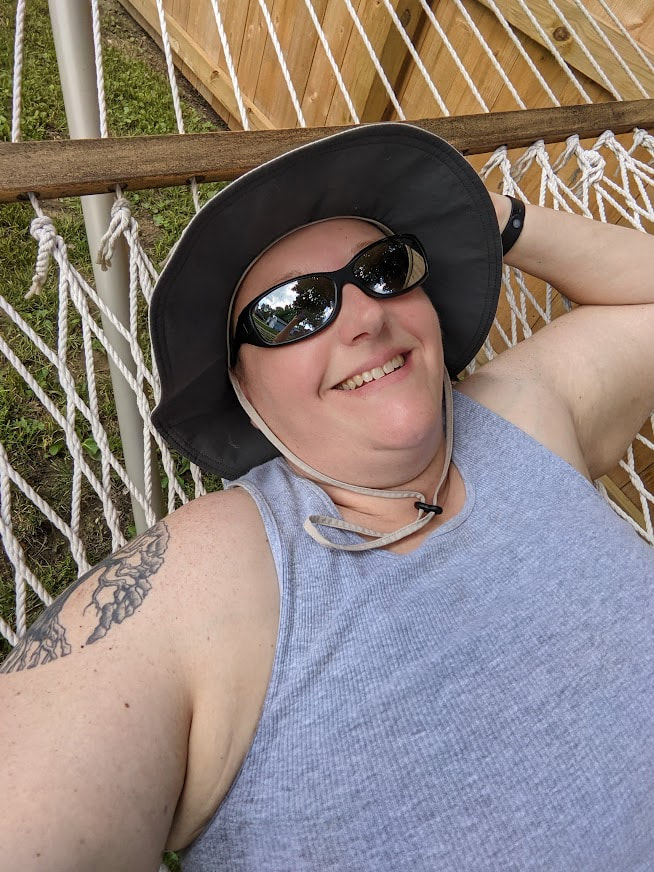 The first book on Celtic Christianity I ever read was a book by John Philip Newell titled, "Listening for the Heartbeat of God: A Celtic Spirituality." I was still a layperson back then, trying to muddle my way through damaging theologies and ideas that didn't seem to make sense to me about God, faith, and the world around me. So, at the suggestion of my mentor and pastor, I read this book. Immediately, I was captivated. The ideas, the theologies, the deep connections of Celtic spirituality were speaking aloud deep truths and hopes that I had long held but had no language for. For example, Celtic spirituality incorporates Pelagius' teaching about original blessing, as opposed to Augustine's theology of original sin. While the Historical Church ran with Augustine's idea that we are all born sinful because Adam and Eve screwed up, Pelagius held that we are all born good, and life and our choices begin muddying things up for us after we are born. But it was more than just debunking the horrible theology of original sin that spoke to my soul. Celtic spirituality names and celebrates a deep connection to creation. It holds that God is not up in the sky somewhere removed from us or our lived realities, God is a part of us--ALL OF US--and not just us humans, but also in the flowers and the trees, and the animals, streams, and soil. "The presence of God's spirit in all living things," Pelagius wrote, "is what makes them beautiful; and if we look with God's eyes nothing on the earth is ugly." What's more, Celtic spirituality finally answered questions about love and neighborliness that years of empty and trite anecdotes of both never even touched. Newell explains, "Because Pelagius saw God as present within all that has life, he understood Jesus' command to love our neighbour as ourself to mean loving not only our human neighbour but all the life forms that surround us. 'So when our love is directed toward an animal or even a tree,' he wrote, 'we are participating in the fullness of God's love.'" All of this informs SO MUCH of what we do in our household--it's why we garden, why we took up half of our yard plant native prairie plants. It's why we don't fertilize our yard, why we feed the birds (even the ones that are sometimes a nuisance). It's why we adopt dogs and recycle what we can. It's why we compost and leave a bunch of leaves for critters over the cold months. It's why we share the harvests from our garden with others, why we hang our clothes out on the line to dry in the sun rather than in the dryer: Because God, my spouse and I understand, is present in it all, and we are connected to it all. We are trying our best to participate in the fullness of God's love. On Sunday, May 7th, we are celebrating Rogation Sunday here at St. Paul. It is a time to ask God's blessing on our efforts to sow seeds that might provide a bounty and delight to ourselves and others. It is a time when we recognize our connection to one another and, indeed, ALL of creation, and we ask God's blessing on our own endeavors--whatever they may be--to participate in the fullness of God's love. It's a time when we recognize that our gardens, our pollinators, our delicate and magnificent ecosystem is one big Divine gift...a gift that connects us and sustains us all. I pray you will join us for Rogation Sunday, and I pray you will be intentional about leaning in to your own postage stamp of the earth and listening for the very heartbeat of God that is drumming a divine rhythm throughout all of creation...even here. Even now. Listening for the heartbeat of God with you, Pr. Melissa  The view through the porthole of the largest tank at the St. Louis Aquarium. The view through the porthole of the largest tank at the St. Louis Aquarium. Last week while on vacation to St. Louis, my spouse and I went to the St. Louis Aquarium at Union Station. While there, we were invited to get a tour "behind-the-scenes." When we accepted this invitation, we were quickly made aware that no pictures were allowed in this area. Soon, I think, we learned why: The behind-the-scenes tour was of the aquarium's large shark and stingray tank--the largest tank in the entire aquarium--and we would be standing directly over the top and around the sides of this open tank. There was one observation porthole in the actual aquarium tour in which these majestic creatures could be observed, but otherwise, the only way to take it all in was this backstage pass. After explaining how many of the creatures (not just sharks and rays, but also turtles and different kinds of fish) had found their home at the aquarium due to an injury or to a defect of some sort, we were led to the center of the tank where a large rope bridge crossed directly over the open waters. Our tour guide explained that the rope bridge was made only of rope tied in over 2,000 knots, and that it was strong enough to hold 6 elephants, but then turned over her shoulder to us and said, "Only one person on the bridge at a time," before demonstrating her heel-over-toe method of navigating the bridge. Suffice it to say that my confidence was not at an all-time high as I began to navigate the bridge myself. As I began my way across, I felt the bridge begin to quickly move me side to side. I balanced, then I counterbalanced. And when I got to the middle, I stopped. I stopped to take in the beautiful creatures swimming below me: The rays with no barbs that flipped their fins up above the water to look like a shark fin. The actual sharks motating elegantly through the water. The turtle who had been in an accident with a boat rudder and suffered a hole in her shell that had to have a weight surgically attached to her shell to help her be able to dive beneath the surface of the water. I was on shaky ground--no ground really--but in that shaky spot I was met with something spectacular and ordinary all at the same time. And all I had to do was be willing to stop and receive it. I know the old adage is that "If you're going through hell, just keep going," but I wonder if maybe in our drive to "suck it up and soldier on," we're missing what the shaky spaces have to offer us? What if, in the places that shake our spirits and shake up how things have always been in our lives, in our homes, in our workplaces, in our relationships, and in our journeys of faith, there is something spectacular and ordinary waiting to surprise us or offer us something new? What if we--even for just a moment--didn't just keep going and didn't soldier on and instead stopped and received what the shaky space had to offer us? What if we felt our fear and our uncertainties and our dashed hopes and our wonder and simply stood in it, taking it all in? Might we find that there are ordinary miracles swimming around us? Might we find that life continues even as our hearts break and our fears rage, so we can continue as well? Might we see the shaky places as places we can learn to rest in, knowing that the Divine always finds a way to meet us in them? I don't know...but I think we just might. The way I see it, we can either rush through the shaky places in our lives, or we can stop and receive what they hold for us--no matter how many times we've been told to just keep going, no matter how many times we have chosen to power through. We can stop and take in the gifts of shaky places, and what we might find is that we have always been held by something stronger than we could ever ask or imagine. Navigating the shaky places with you, Pr. Melissa  I could actually write for a number of weeks regarding Christianity and trans* and nonbinary people. I could write about how scripture is rich with examples of gender non-conforming people and intersex and asexual people. I could write about the wisdom of our Jewish siblings found in the Talmud, which recognizes eight (you read that right) genders. And perhaps this will form the backbone of a future study here at St. Paul. But for now, I want to move us beyond the texts and the apologetics, and focus on something that is so often forgotten: The Gifts that Trans* and Nonbinary people bring the Church. Relying (again) on the work of Austen Hartke for these insights, I offer you just some of the MANY gifts that trans* and nonbinary people bring the church. The first is the gift of a lived understanding related to suffering, death, and resurrection. Trans* and nonbinary people understand, uniquely, what it is to suffer and die to something, and then be raised to new life. They know the pain of living under oppressive regimes–including, but not limited to–the gender binary, societal gender norms, and the Church’s arch nemesis, “The way things have always been done.” They have suffered to live into the fullness of who they are. They have died to a name and pronouns that aren’t consistent with their gender, to the ways they once moved through the world, and even died to a body that didn’t match the fullness of who they are. And they know resurrection. They understand new life beyond the suffering and the death. They understand the new hope and the expectation that are born from a new identity that is more true to who they really are. For those who have surgery as part of their journey, their body, like the resurrected Jesus, bears scars. Jesus encouraged his disciples to look at and touch his scars in order to better understand resurrection and so, maybe, the scars of trans* and nonbinary people might also gift us a more full and embodied understanding of resurrection as well. To be sure, trans* and nonbinary people have stories to share about their personal experience with suffering, death, and resurrection that the Church needs to hear. Trans* and nonbinary people can also offer the Church an antidote to false binaries that allow the rest of us to embrace the complexities of our faith. Too often in the Church, we fall into what I call “sucker’s choices,” or believing that we must choose to be this way or that way. Trans* and nonbinary people can lead us in navigating life in the in between spaces–in the both/and spaces that Jesus so often pointed toward. In fact, in scripture we often find Jesus calling out religious leaders–from his own faith–for neglecting the spirit of the Law and choosing instead to the either/or letter of the Law. As I said, the list could go on and on, but suffice it to say, trans* and nonbinary people are not only the beloved of God, but are absolute gifts that the Church should embrace when offered. The Church loses something of God and of the richness of our faith stories when we push trans* and nonbinary people not only out of the Church, but also when we try to push them out of the human story completely. Our faith and our lives are better and more full when we accept the gifts that trans* and nonbinary people have to offer and allow them to lead us somewhere deeper, somewhere wider, somewhere beyond where we could ever go without them. I, for one, am more than ready to receive and to be led. Pr. Melissa |
Rev. Melissa Sternhagen
Rev. Melissa Sternhagen was called as the pastor of St. Paul Congregational UCC in June of 2020. Prior to her call to St. Paul, Pr. Melissa worked as a hospice chaplain in the Ames, IA area, following pastorates at rural churches in Central Iowa and Southern Illinois. Pr. Melissa is a second-career pastor with a background in agribusiness and production & supply operations. She received her M.Div. from Eden Theological Seminary in St. Louis, MO, and holds a MA Ed. in Adult Education and Training, and a BA in Organizational Communications. Archives
July 2024
Categories |

 RSS Feed
RSS Feed
